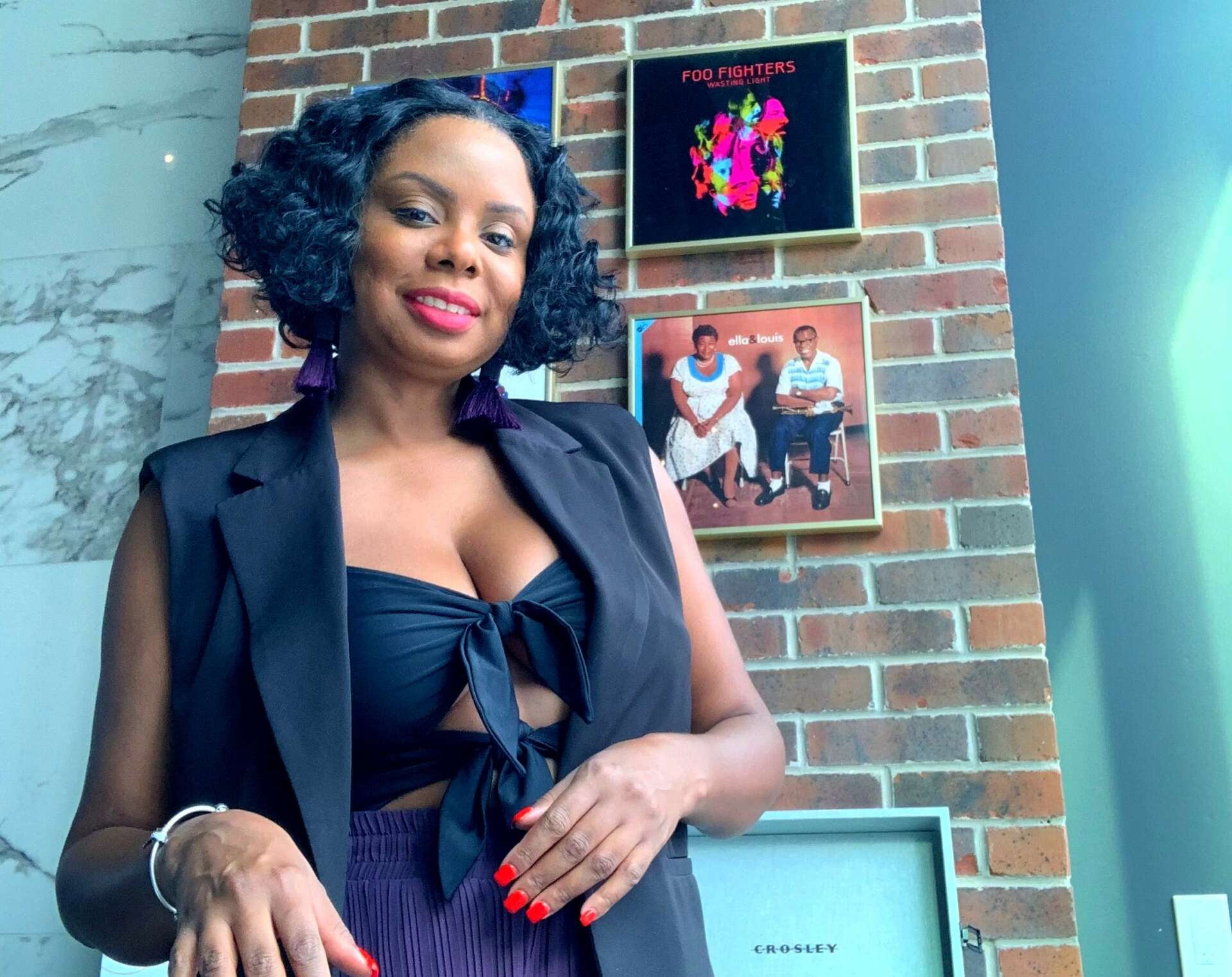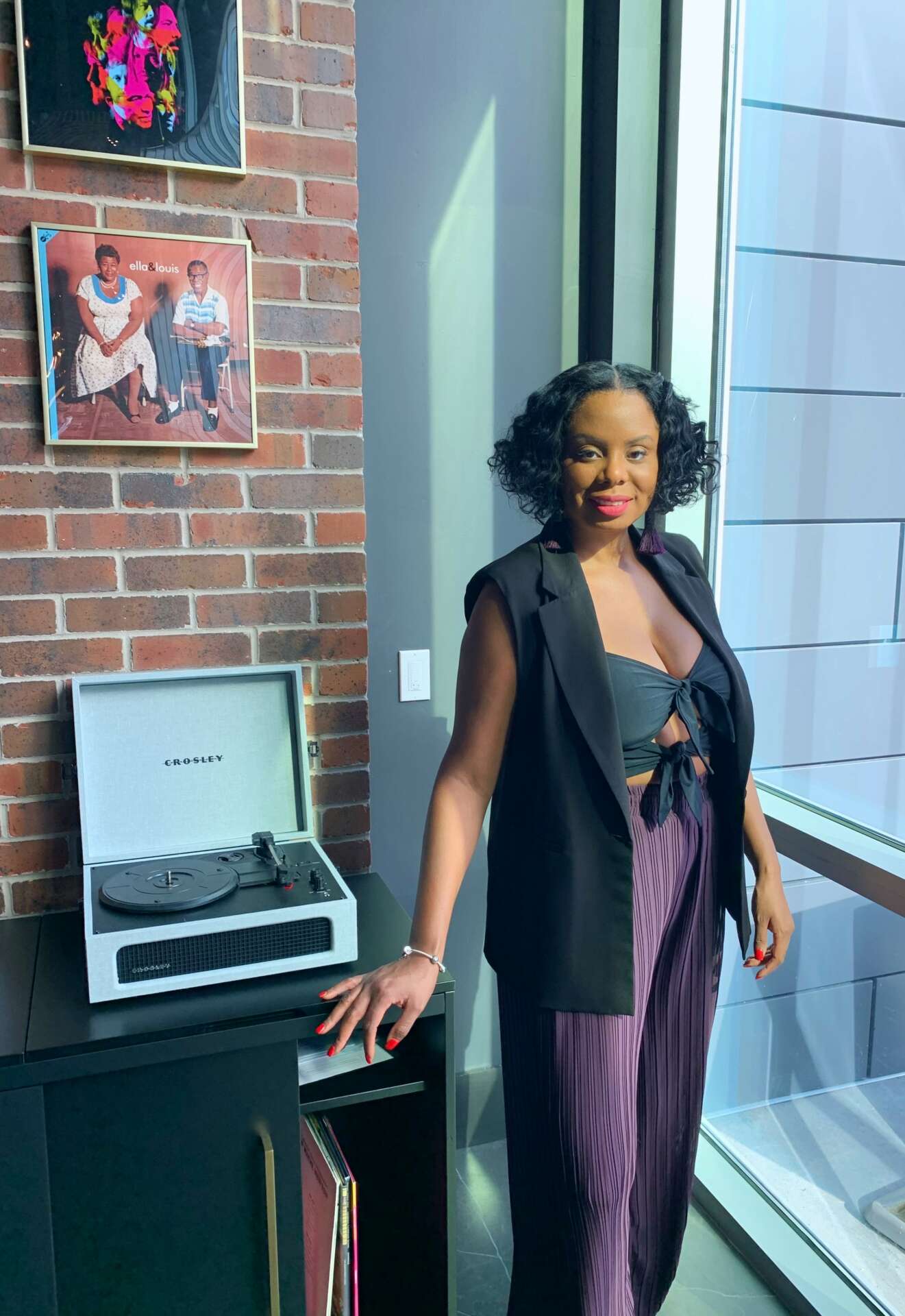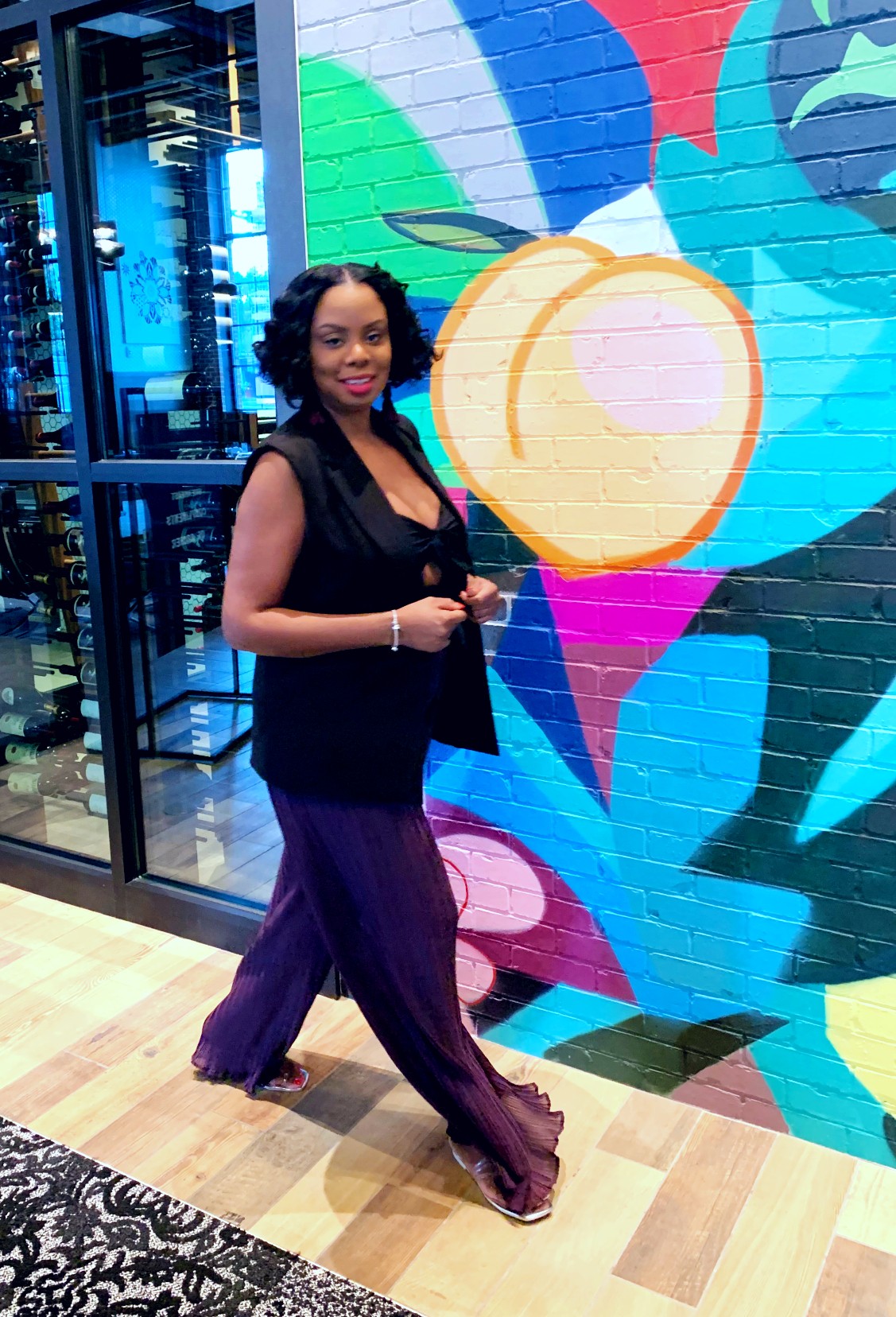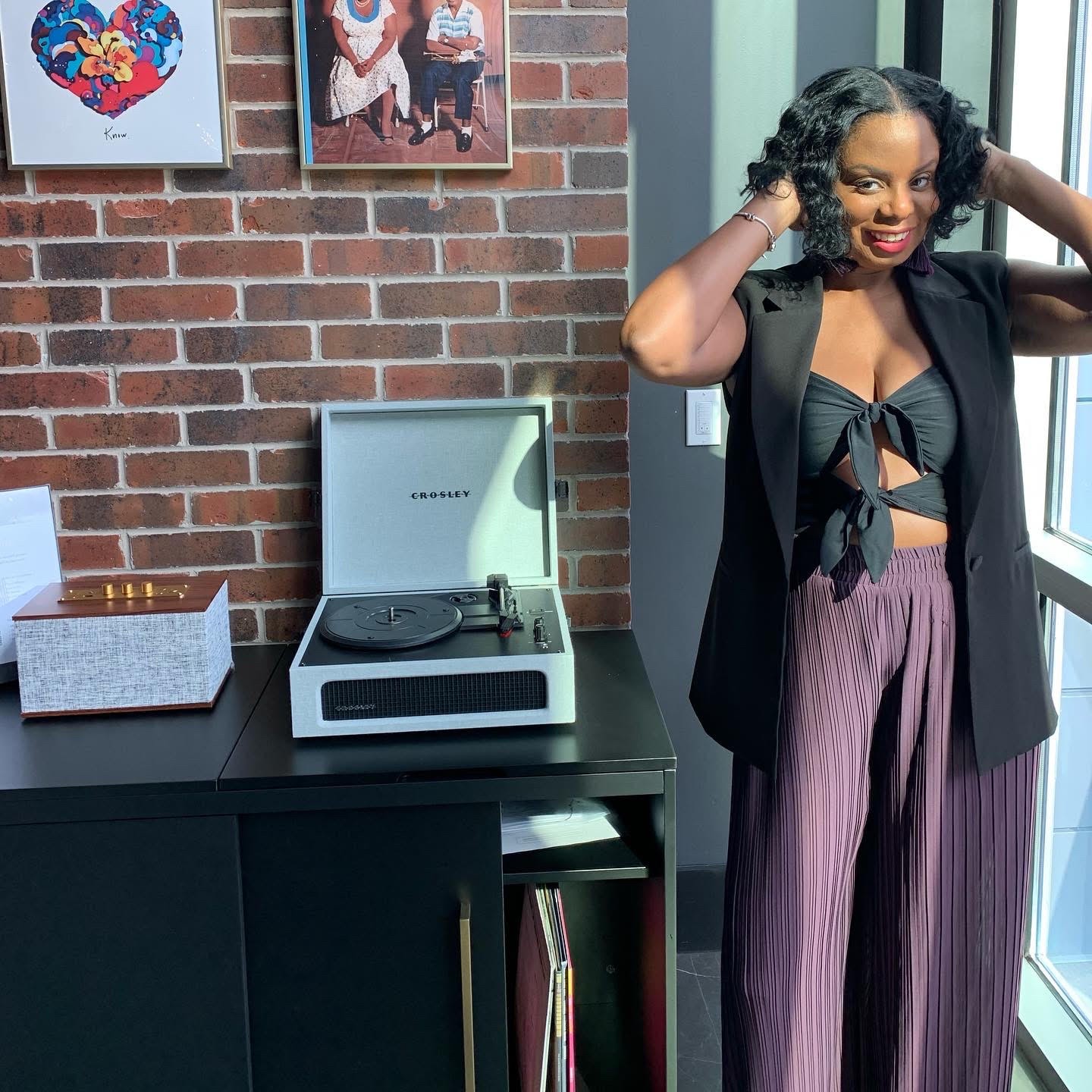We were lucky to catch up with Janell Hazelwood recently and have shared our conversation below.
Alright, Janell thanks for taking the time to share your stories and insights with us today. How did you learn to do what you do? Knowing what you know now, what could you have done to speed up your learning process? What skills do you think were most essential? What obstacles stood in the way of learning more?
As a journalist who has been in the business, writing and editing, for more than 15 years, I highly recommend that anyone who wants to write for an online publication have basic newswriting, media pitching, and interviewing training. I also highly recommend working for a local paper, publisher or college publication before setting out to work full-time as a freelance writer, editor or content producer for national brands.
I had the most amazing learning experiences in college, as an intern, and working for a small-town newspaper before venturing out to work for The New York Times and national magazines like Black Enterprise. It prepared me to get to know the workplace culture, build up my confidence and writing skills, and get a realistic view of my strengths and weaknesses as a writer and editor. It also afforded me the chance to learn what exactly I didn’t want to do in journalism and it was a great way to fail forward without making major career-breaking mistakes later in my career.
In my 20s, I faced challenges with self-esteem and had a bit of a false ego in relation to my abilities because I’d always been an honor student and was told that I was great. While that was true, I still had some maturing to do when it came to really learning from others, listening, and taking in the lessons. I learned the hard way, from someone I worked with, that I’d gained a few enemies simply because I seemed hard to work with and wasn’t collaborative, and that same person helped me to do the self-work, mentoring me through various scenarios in order to become a better listener and collaborator. (I’d had a few traumas stimming from working with a few bosses who exhibited very toxic behaviors and had a bit of a chip on my shoulder back then.)
On the flip side of that, I’ve worked with many amazing professionals who became mentors and industry friends. These are people who I still have relationships with today, and, after leaving the 9-to-5 life for self-employment, were the most amazing gateways to client work and staying afloat in the early years.
I mention all of the above to reiterate to today’s recent grads (or someone just starting out as a freelance writer, editor, content producer, etc.) that oftentimes, a successful, long-term career in any content-related industry requires actual experience and real training (whether through an internship, a few courses, volunteer work, or all of the aforementioned, combined). In today’s online world, where many freelancers often work in isolation and where trends, traffic, and sensationalism seemingly rule the day, it’s important to get out there, interact with other journalists and writers and really get that hands-on experience so that you can grow both in your career and as a person. You’ll last a lot longer that way and do work you’re proud of. I’ve learned the best lessons by actually living life, being deliberate about being of service, being selective in the companies I work with and the projects I involve myself in, and rolling through challenges with faith and the support of others.

Awesome – so before we get into the rest of our questions, can you briefly introduce yourself to our readers.
I’m a proud HBCU journalism school graduate who, from the first time I decided to become a journalist, loves using the power of dynamic, truthful and authentic storytelling to give voice to the voiceless. I’ve dedicated my career to shedding light on the issues, (yes, I meant that word), and amazing contributions of women millennials, especially entrepreneurs and women of color.
I’ve also been a lecturer and teacher, as I love to pour into future journalists, brand leaders and entrepreneurs letting them know that storytelling is not something to take lightly and that there’s a responsibility with it, especially in regard to serving minority and women-centered communities.
I got into being a self-employed writer, editor and consultant due to a need I saw while working for major publishers. I saw many women and minority entrepreneurs losing out simply because they did not pitch their businesses in a way that was engaging, authentic or relevant, and while they were amazing, were really being pushed out of a competitive edge with their counterparts. I wanted to use my knowledge, from working and being part of teams that greenlight coverage and other branded opportunities to level the playing field.

Any advice for managing a team?
I went back to school—after more than a decade of not being a student in a classroom—to earn my master’s in organizational leadership simply because I knew I needed to brush up on my management skills. (I graduated, in my late 30s, just a year ago.) I’d become a manager before 30, at a major publisher, and it really overwhelmed me. I lost friends I’d hired and learned some hard lessons from those early experiences, so earning that degree was high-opening and taught me a lot about myself, my leadership style, how humans interact with one another in different business structures and how leadership is redefined as an act of service, not authority.
My advice for managing a team and maintaining high morale is first, get a mentor. Find someone who has actually successfully managed teams. Be sure that there are results of the “success” that are super-evident via a fair assessment of their reputation, their training and experience, their leadership style, and the overall achievements of any team they’ve managed. (You can find out these things via LinkedIn, by asking around, reading books about them, reading case studies, or by volunteering to be on their team if they’re someone in your company or department).
Second, get training. Many people are promoted without the leadership and communications training they need to be effective leaders. Management is not about just telling people what to do and giving reports to the higher-ups every week. There’s nuances involved that you only learn via training, role-playing, research study, and actual experience. Try a course, go back for your master’s degree, ask about the resources that your company offers in this regard, or again, volunteer for leadership roles well before there’s an opportunity to become a manager. I really wish I had either shadowed another manager or taken a few courses in communications before actually taking on a managerial role.
Third, actually talk to your team, both collectively and individually. Get to know them as human beings. Find out what motivates them. Ask open-ended questions and take their ideas seriously. Allow them opportunities to lead and take constructive criticism (even if it has to be obtained anonymously through some other means.) Be deliberate about actually interacting with them on a professional level and remember the mentorship and development aspects of management.
Last, remember that while your team members are not your friends, people take work personally. Practice emotional intelligence, follow protocols and keep that fine line in tact when it comes to interactions with them. Keep your integrity while still pouring into the people you work with via service and the training that you have about what motivates people and how to communicate with them.


How about pivoting – can you share the story of a time you’ve had to pivot?
Early in my self-employment journey, I had to pivot and actually go back to a 9-to-5. Not only was it humbling but it taught me a lot of lessons that I still employ today. I learned customer service, better communications skills, and more humility. I also learned that I had to try, even harder, to continue to be a success in self-employment doing what I love and not doing something just to pay the bills.
Failures can teach a lot more than success, and as someone who saw a lot of success from college into my first few jobs, I always held on to the ego of all of that. It’s challenging to confidently face challenges or change, both of which are evitable in life, when you have this view of yourself as “perfect” or “always on top.” Failure taught me resilience and built a more authentic self-view of confidence for me that no one can really take away. True, it’s great to achieve a lot, especially early in one’s career, but it’s even better when you come out of a struggle on your own, without all the pats on the back or the money or the titles.
For any creative who is self-employed, never feel ashamed of a so-called failure of having to pivot to a 9-to-5. Allow the experience to fuel your dream, afford you more experience, and gather more contacts for your network. See it as a learning opportunity and something God has for you in order to make you a better person. Take the personal finance lessons from it as well. Sometimes, we need a break from handling it all as self-employed creators. We need that breathing room to just create.

Contact Info:
- Website: https://www.hellojanell.com/
- Instagram: https://www.instagram.com/janellirl/
Image Credits
Photos By Queen Carter


